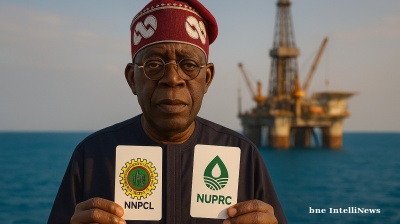Serbia will take steps to acquire the Russian stake in its sole oil company, NIS, following sanctions imposed by the United States and the United Kingdom targeting Russian entities, including Gazprom Neft.
The sanctions, introduced by the US Treasury’s Office of Foreign Assets Control (OFAC) on January 10, are part of broader efforts to reduce Russian energy revenues in response to the war in Ukraine. Serbia's efforts to restructure NIS’s ownership could strain the country's relations with Russia and potentially reorient its foreign policy in the years ahead.
NIS, which is 50%-owned by Gazprom Neft and 6.2%-owned by its parent company Gazprom, has come under secondary sanctions risks. Serbia currently holds a 29.9% stake in the company.
“We are facing serious sanctions that require the complete removal of Russian interests in NIS. An ownership transformation must begin immediately,” Serbia’s President Aleksandar Vucic told a press conference. He added that the Serbian government has until February 25 to finalise the transaction, with a potential extension for payment until March 12, pending OFAC approval.
Vucic had previously suggested that reducing Russia’s stake in NIS to below 50% could shield the company from sanctions. However, he revealed on January 10 that the US demands go further. “From what we’ve seen, it’s more about ‘removal’ than ‘reduction’. They won’t even allow a 49% option; they want a complete exit from NIS,” Vucic stated.
The Serbian leader also confirmed plans to discuss the sanctions and Gazprom Neft’s exit from NIS with Russian President Vladimir Putin. It is unlikely that Russia will accept a complete withdrawal of ownership, which would be a major strategic setback for Moscow’s influence in the Balkans.
NIS, Serbia’s leading oil importer and refiner, operates service stations across Serbia and neighboring countries, including Bosnia & Herzegovina, Bulgaria and Romania. The company’s crude oil supply is primarily delivered via the JANAF pipeline from Croatia, with sources including Russia and Iraq.
The company has faced scrutiny since 2008, when Serbia sold a 51% stake to Gazprom for €400mn, coupled with a €550mn investment pledge. Critics have argued that the deal undervalued NIS, leaving Serbia vulnerable to geopolitical risks linked to its energy dependency.
The US sanctions on Gazprom Neft and other Russian oil subsidiaries align with the Group of Seven’s (G7's) efforts to curb Russian energy revenues. These measures include restrictions on oil-carrying vessels, opaque traders and Russian-based energy officials.
“These sanctions reflect the secondary risk under US executive order 14024,” OFAC explained, warning that any potential buyer of Gazprom’s shares in NIS would face immediate sanctions.
The sanctions have reignited debates over Serbia’s foreign policy, as the country navigates its historical ties with Russia while facing Western pressure to align with EU and NATO policies in the wake of the Russia-Ukraine war.
Vucic acknowledged Serbia’s precarious position in the wake of the sanctions. “The financial transaction must be finalised by March 12, but the transformation must be initiated now,” he said.
News

El Salvador leads Latin America's democratic decline, global watchdog warns
The latest IDEA report warns El Salvador faces the fastest democratic erosion in Latin America, with security policies under Bukele raising concerns over freedoms, judicial independence, and long-term institutional damage.

Nigerian president advances oil bill placing NNPCL under control of Finance Ministry, upstream regulator
President Bola Tinubu has endorsed a bill that would undermine the "independence" of NNPCL, shifting ownership to the Finance Ministry and handing new powers to upstream regulator NUPRC.

‘Tinder Swindler’ Simon Leviev detained in Georgia on Interpol red notice
Shimon Yehuda Hayut gained worldwide notoriety thanks to the 2022 Netflix documentary 'The Tinder Swindler', which detailed how he allegedly posed as the son of billionaire diamond tycoon to scam women he met on Tinder.
_1758026150.jpg)
Bolivia sells $1bn of gold reserves in forward contracts to shore up finances
In recent months, the Central Bank of Bolivia (BCB) has executed forward contracts on gold worth nearly $1bn, raising questions about the legal framework, transparency of operations and long-term implications for the economy.




